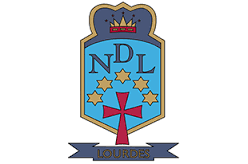 Support for Learning
Support for Learning
The Support for Learning Department is an experienced team of 4 teachers and 7 Support for Learning Workers. Our curricular-specialisms – Modern Languages, History and English – are used to support children’s development in these areas, as well as other teaching specialisms. One of our Modern Languages teachers, of which we have two, is an EAL (English as an Additional Language) specialist. She supports pupils whose language acquisition can be a barrier to their learning.
Working closely with associated primaries at transition time, we gather together comprehensive information and documentation on new pupils and ensure this is shared electronically with all teaching staff. This valuable information informs the groupings of classes, support mechanisms and strategies put in place, as well as any additional support strategies key pupils may require such as additional one-to-one support to enhance reading skills or numeracy skills.
As part of the wider Pastoral Care Team, we work closely with different professionals within and out with the school – PTPCs, Educational Psychology, NHS Specialists, Hearing Impairment Services, Glasgow’s Dyslexia Support Service, to provide appropriately supportive strategies for pupils, parents and teachers. This multi-agency approach ensures all those involved in the child’s educational progress have a part to play in making the journey as effective as possible. We are involved in the planning and reviewing of pupil progress and participate in statutory and non-statutory meetings.
We also take on a consultative and diagnostic role, in tandem with other partners, to ensure we have accurate learning profiles of pupils, have identified any barriers to learning and provide advice and support following the diagnostic process. We offer in-house training and advice to teaching colleagues on support strategies and differentiation methods to use within their classrooms.
In terms of in-house assessments and Scottish Qualifications Authority examinations, we prepare the pupils throughout their early secondary years (BGE) to work with appropriate support mechanisms such as technology or readers/scribes. We also work hand-in-hand with pastoral care to ensure our pupils are supported in their transition from secondary to tertiary education or the world of work.

